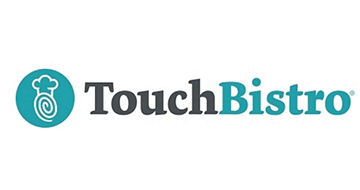
| Starting price | $9/mo |
|---|---|
| Pricing model | Per User |
| Free Trial | No |
| Free Version | Yes |
Discover the power of service management software when it comes to delivering exceptional customer service and streamlining service operations. Find the best value service management solution for your needs to streamline service delivery, increase customer satisfaction and improve overall service efficiency.
Unleash the full potential of your service operation with our hand-picked selection of best-in-class service management software. Our selection helps you find the best value software for effective service management.

| Starting price | $9/mo |
|---|---|
| Pricing model | Per User |
| Free Trial | No |
| Free Version | Yes |

| Starting Price | $69/month |
|---|---|
| Pricing Model | Subscriber based |
| Free Trial | No |
| Free Version | No |
Service management software is a customer-focused management solution for creating an easy way to track and solve customer queries. The system mainly focuses on the value of the client and maintaining a good relationship. This is beneficial to the business since a satisfied client will always come back. Furthermore, clients that trust a brand are significantly more likely to recommend it to family and friends.
The key to implementing the best service management software is to first define its function. This definition enables both you, as the business owner, and the customer to understand what to expect from the service. Moreover, a well-implemented service software identifies an internal process that provides and supports its functions.
The majority of service management solutions are cloud-based, and they are delivered through software as a service (SaaS). This makes it easier to implement the system since no additional infrastructure is required. You can also implement the system on-premise by creating infrastructure. This is usually necessary for organizations that deal with sensitive content.
A service management system performs different functions in an organization. It helps ensure good customer relations by giving desired answers to customers’ queries. Here are some other things the best service management software does.
Our rankings are based on a meticulous evaluation process. We conduct thorough research, analyze price and value, evaluate ease of use and user experience, assess feature set and customization options, consider customer support and reputation, and incorporate user feedback and reviews. Each software solution is assigned a Genius Score that reflects its overall quality and value. Trust our comprehensive methodology to find the ideal service management software that meets your organization’s needs.
Although service management solutions have the same functions, each is designed with different features. The exact number varies depending on the solution that you choose. Here are some main features you can expect in a typical service management system.
Quality service delivery is crucial, especially when you want to earn your customers’ trust. If you are still unsure whether to implement a service management solution, consider the benefits that come with using this software.
In this digital era, it is crucial to have all your online services available on all digital channels and platforms. With the implementation of the best service management software, a company can easily reach clients and consumers through different channels. This gives users an amazing experience while building loyalty and trust with the business,
This entails having a service management system operated from a single point in the organization. All customer and staff queries are delivered to a centralized location where they are handled by the relevant personnel. This empowers your team since all complaints and requests about services can be solved from one place without any hassle.
Thanks to the inclusion of analytics tools, you can track how your staff are doing and also the service delivery to clients. With this information, you can create reports that help you make informed decisions. Identifying a problem earlier through these analytics tools also allows the business to resolve problems cost-effectively.
By giving clients top-quality support and other services, your business earns quality customer satisfaction with no complications. This would allow you to maintain a good relationship between your customers and your business. In the long run, the business profits from the relationship, while existing customers get the best services.
Due to the automation of repetitive tasks, a service management system simplifies various complex tasks. These processes usually slow down service delivery to customers. With these tasks out of the way, staff can focus on improved and fast service delivery to clients. Furthermore, this saves time, especially on tasks that would otherwise have taken ages.
An advanced service management system ensures the best service delivery across different platforms. This is the key to customer satisfaction and helps to gain trust and loyal customers. A happy customer will recommend your brand to other consumers creating new leads. With it, you can build a good reputation and strong brand image against competitors.
Many brands have already implemented service software for streamlined service delivery. Here are examples of industries that should consider implementing service management software.
Insurance services usually get a lot of queries about their services, and they need to give answers for a better chance of getting more clients. Considering the number of users, direct human interaction is close to impossible. However, with the implementation of service management software, the process will be streamlined and efficient.
In the telecommunication industry, new and improved services come up every day. This means that organizations can inform their consumers about these developments. Consumers might have questions regarding how the services influence their daily routines and what happens if there are issues. With service management software, the industry can answer consumer questions and help solve issues that may arise.
Most people don’t understand how government services work, only if there is a need do people inquire. By implementing service management software, all the information can be stored in a centralized location. Citizens can go through the knowledge base and inquire about things they don’t understand.
The healthcare industry now relies on IT services to resolve technological issues. Such institutions cannot afford delays due to paperwork especially when a patient is at risk. Service management solutions play a critical role in responding to emergencies for proper tracking and escalation. Combining this with other capabilities closely connects support agents with frontline users to speed up processes.
If you work in the hotel and tourism industry, chances are you are dealing with traveling individuals. When your guests are treating themselves to a relaxing experience, give them an easy way to communicate with staff. This can be achieved by using a service management system with different communication options.
The cost of a service management system varies depending on the number of users and the deployment technology. Self-hosted services only require a software purchase fee. However, cloud-based service software will include a monthly fee. Pricing ranges from $55 to $200 per month. For enterprise services, the price rises depending on the additional features required.